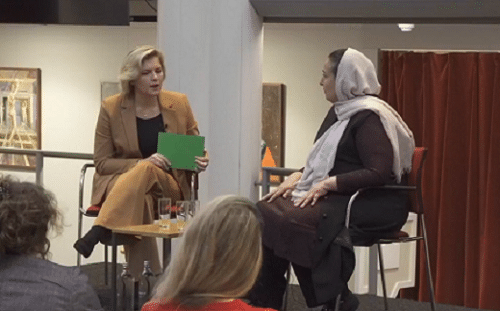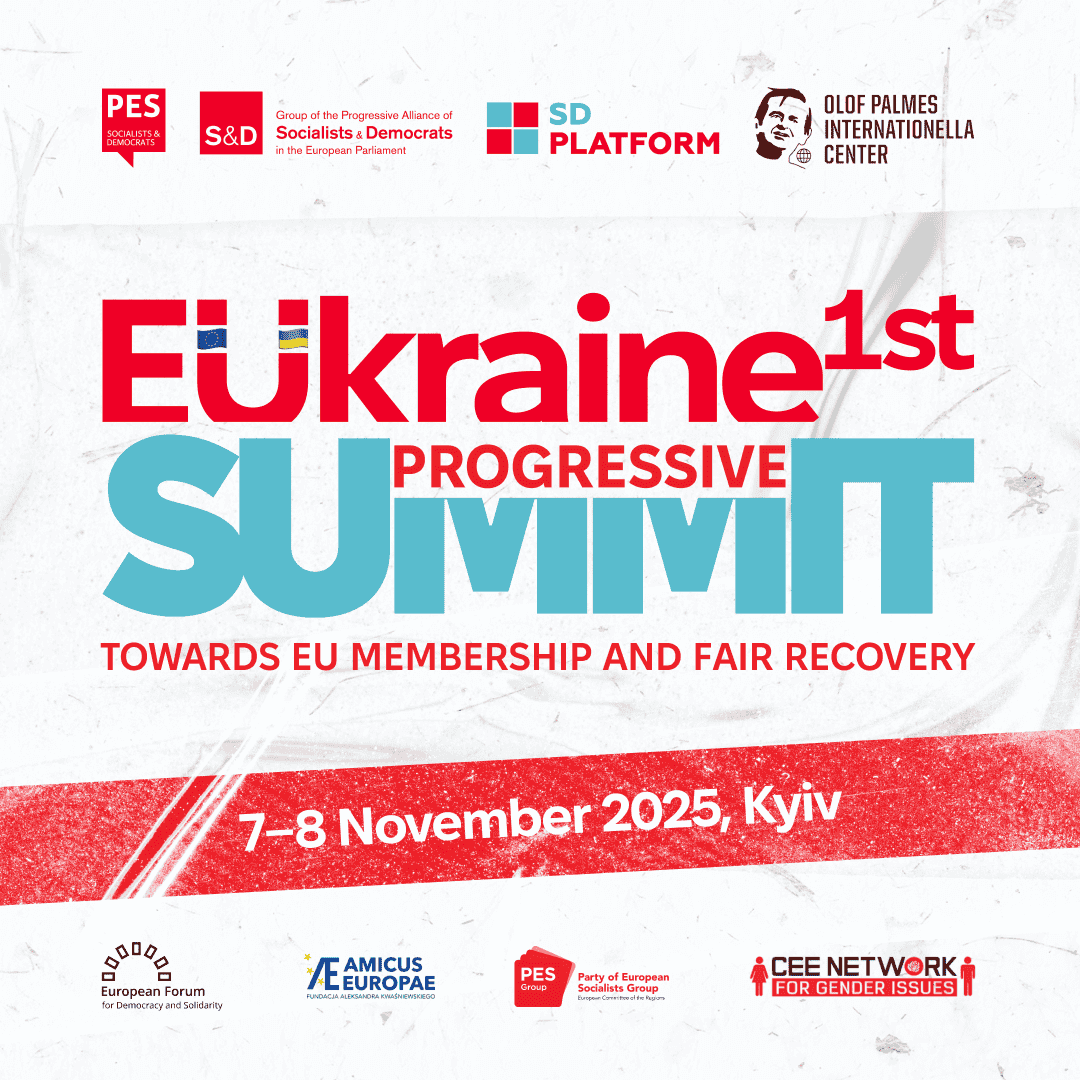On the 23rd of October FMS, together with the PvdA, organised the Afghanistan lecture with as special guest Dr Massouda Jalal, former Minister of Women's Affairs. The session was focused on women's rights in Afghanistan and international solidarity. Kirsten Meijer, Vice Chair of the FMS, kicked off by emphasizing how lucky we were to even be able to meet that day, in freedom, and in the company of the courageous Dr. Massouda Jalal.
International solidarity: together you stand strong
Kirsten continued by elaborating on international solidarity, what it means for policies and practices, and what we need to do to accomplish it: "Let's start with listening, let's start with understanding the complexity of the situations in countries. And let's start with identifying the needs on the ground." She emphasised that connectedness is the greatest weapon we have to achieve international solidarity. Kirsten Meijer's voice shook with emotion as she said: "The feeling of connectedness is the strongest motive for change because together you stand strong. And we need to stand strong, especially when it comes to international women's rights."
The fight to give girls 'pens and paper'
After the powerful, emotional, and motivating introduction by Kirsten the word was given to Dr Massouda Jalal. Dr. Jalal started the Afghanistan lecture with an overview of what has been going on in Afghanistan recently, and how it has impacted women and girls. She explained how fear, uncertainty and desperation of Afghan women and girls has been increasing, particularly as the Taliban era from the 1990s is still a clear memory for so many. Nevertheless, a slight ray of hope shone through her depressing illustration of the current situation: "The situation for Afghan women and girls in Afghanistan is bleak, but women continue to fight for their rights and to demand equality. This has not changed, and it will not change. Afghan women have been at the forefront of fighting for their rights for centuries."
Dr Jalal emphasised that inclusion of women has been crucial in so many steps of the development of Afghanistan, and now Afghanistan is "on the verge of a catastrophic economic and humanitarian crisis." Though her voice remained neutral as she said this, she conveyed a great sense of urgency: the international community cannot stay on the sidelines. Afghan women mustn't just be talked about, but they must be heard directly. The more Dr Jalal talked about the role of the international community, the harsher her words were. By the end she didn't just ask but demanded that the international community protects civil society and the Afghan women. She finalised the lecture by calling on all of us, including the members of the audience there, to demand attention for these issues from their governments. She emphasised that she was willing to be hanged for her fight to give girls 'pens and paper', and that we must not now lose sight of the fact that protecting human rights, including for girls, is key to sustainable development.
A call to fight, and to keep fighting
Dr Jalal's speech was met with enthusiastic applause, and multiple questions from the moderator and the audience. When asked why she came to the Netherlands, Dr. Jalal emphasised that she did not choose to be here, she wants to be in Afghanistan. She loves the country and wanted to work for its people for the rest of her life. She never dreamed of leaving, but she was forced to go in exile. When talking about the turn her life has taken she actually smiled at the absurdity. No one saw this coming, and perhaps she least of all.
When asked whether Afghanistan was and is a failed state, Dr Jalal didn't have to think longer than a second: a resounding "yes" was the answer. Corruption, failed leadership, and nepotism failed the country. Furthermore, as the Taliban approached, the president left Afghanistan and leadership was handed over to the Taliban 'just like that'. The armed forces didn't resist, since they were so much smaller than the official statistics, and the country was handed over 'as a gift to be given'. And while all this happened, the commanders were in the Emirates 'for a picnic'. The frustration over the rampant corruption and the ease with which the Taliban gained power emitted from every word Dr Jalal spoke. She further exclaimed that the Doha agreement had weakened the government, and she blamed the international community for the situation. 5000 Taliban prisoners got released, while 16 million Afghan women were imprisoned. All the work that the Ministry of Women's Affairs worked so hard to achieve in the past two decades was undone in one go.
Finally, Dr Jalal emphasised that action needed to be taken. Afghanistan is the capital of female enslavement, and could therefore be the strongest starting point for international feminism. This is an opportunity to raise female energy and impact gender issues globally. Therefore, we are called to fight: to fight and to keep fighting.
Watch the full lecture here




